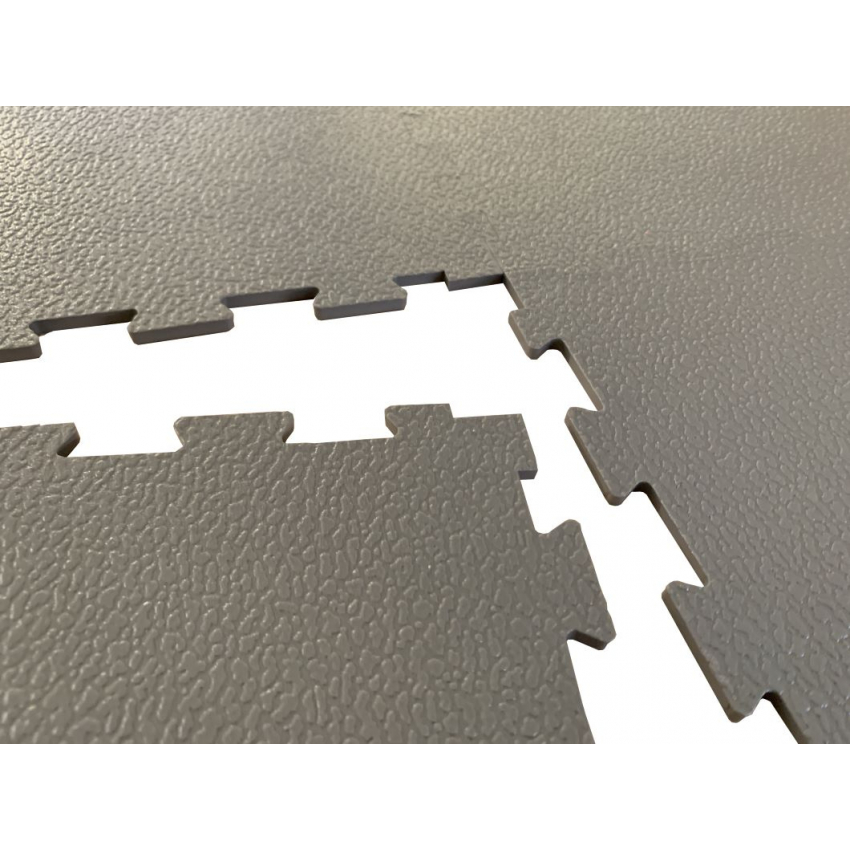


















Heavy pedestrian or light vehicular traffic
Ideal for environments with heavy pedestrian or light vehicular traffic (cars), such as factories, garages, sales areas, stations and shopping centers. Traficfloor-Eco tiles are self-compacting, flexible and resistant, and created from 100% recycled materials.
Available in standard sizes and with Stainproof surface protection (on request).
No need to interrupt activity in the area concerned while the tiles are being laid.
- Dimensions: 50 x 50 cm
- Thickness: 5 or 7 mm
- Color: black ordark gray
- Finish: non-slip
- Quick and easy installation with modular system
- Slabs can be nested, disassembled and reassembled
- Shock- and abrasion-resistant
- Economical: value for money
- Robust, hard-wearing tiles
- Thermal and sound insulation
- Little or no substrate preparation required
RECOMMENDED APPLICATIONS:
Pedestrian and vehicular traffic
Suitable for use in production workshops, storage areas, warehouses, car garages, supermarkets, retail outlets, asbestos-contaminated areas...

| TRAFICFLOOR ECO |
Data sheet
| Format | Slabs |
| Location | Interior |
| Intensity of passage | Intense |
| Properties | Fire resistant |
| Composition | 100% recycled PVC |
| Thickness | 5 mm 7 mm |
| Weight | 6,8 kg/m2 thickness 5mm 9,49 kg/m2 thickness 7mm |
| Fire classification | Bfl-S1 |
| Certifications | R10 |
Industrial mats meet the needs of ergonomic workstations and employee well-being.
They prevent:
There are many uses for industrial mats:
Safety criteria: The mat must cover the entire workstation, be firmly attached to the floor, not shift or slide, and have bevelled edges to prevent falls.
Thickness and flexibility criteria: Contrary to what you might think, you shouldn't choose a very thick or very soft mat. The mat should have a certain elasticity, but still allow a comfortable standing position, without the user feeling slumped.
Environmental criteria :
Environmental hazard criteria : To establish more precise characteristics for a mat (antistatic properties or fire resistance etc...) we need to take into account the hazards present in the environment where the mat will be installed.
Where hazardous liquids are present in the working environment, the anti-slip properties and chemical resistance of industrial mats should be taken into account. The presence of openings on mats to allow the evacuation of fluids is essential.
Traffic criteria: We need to take into account the traffic that takes place on the equipment: how many workers can walk on it? How often, etc., in order to choose the most suitable mat.
Prevent the many problems associated with poor workstation ergonomics: RSI, static shock, bacterial proliferation, etc.
We offer a wide choice of industrial mats: on rolls, in standard sizes, made-to-measure or modular mats to suit all types of workstations.